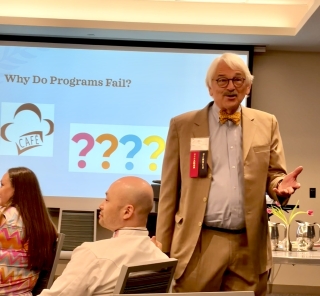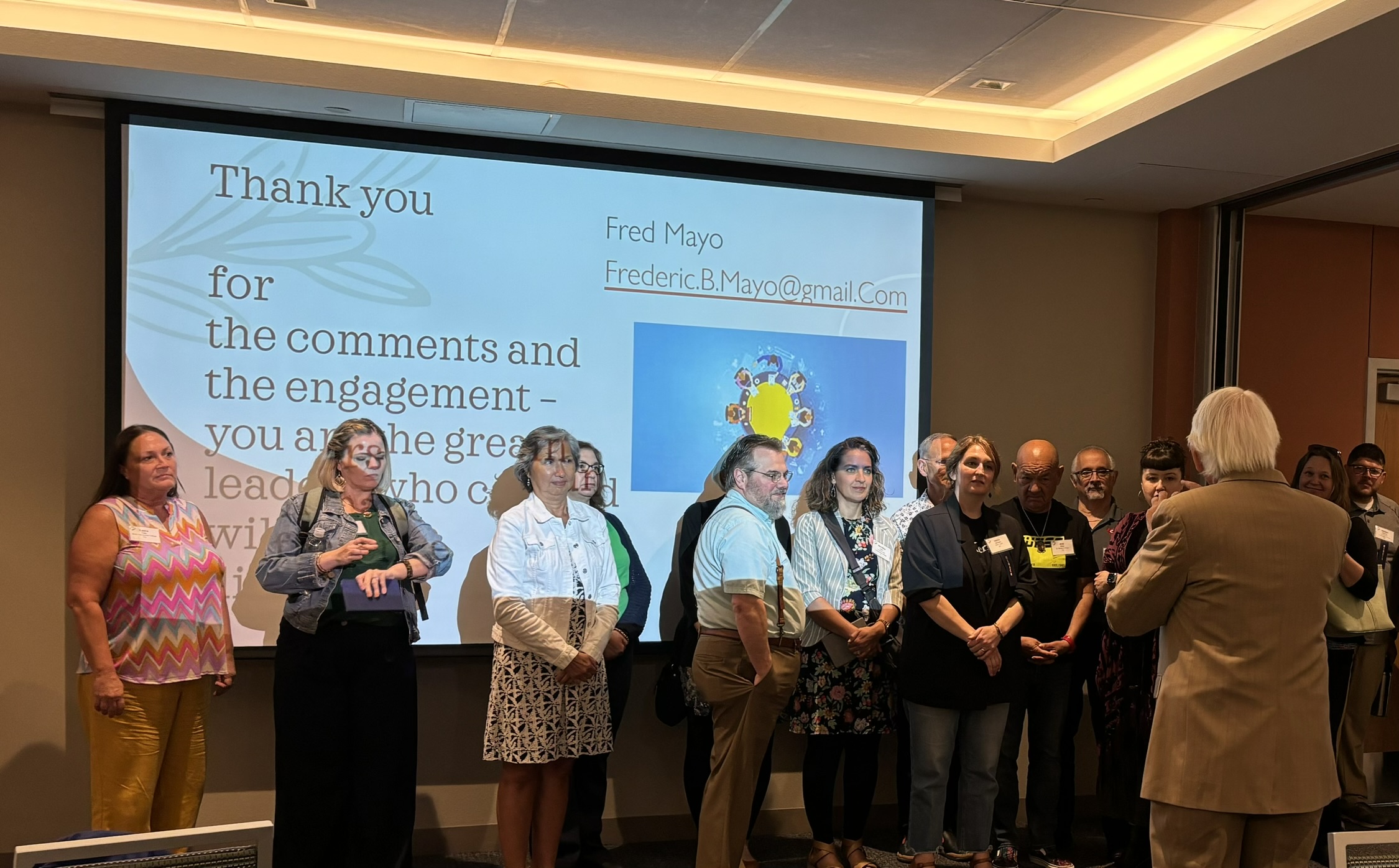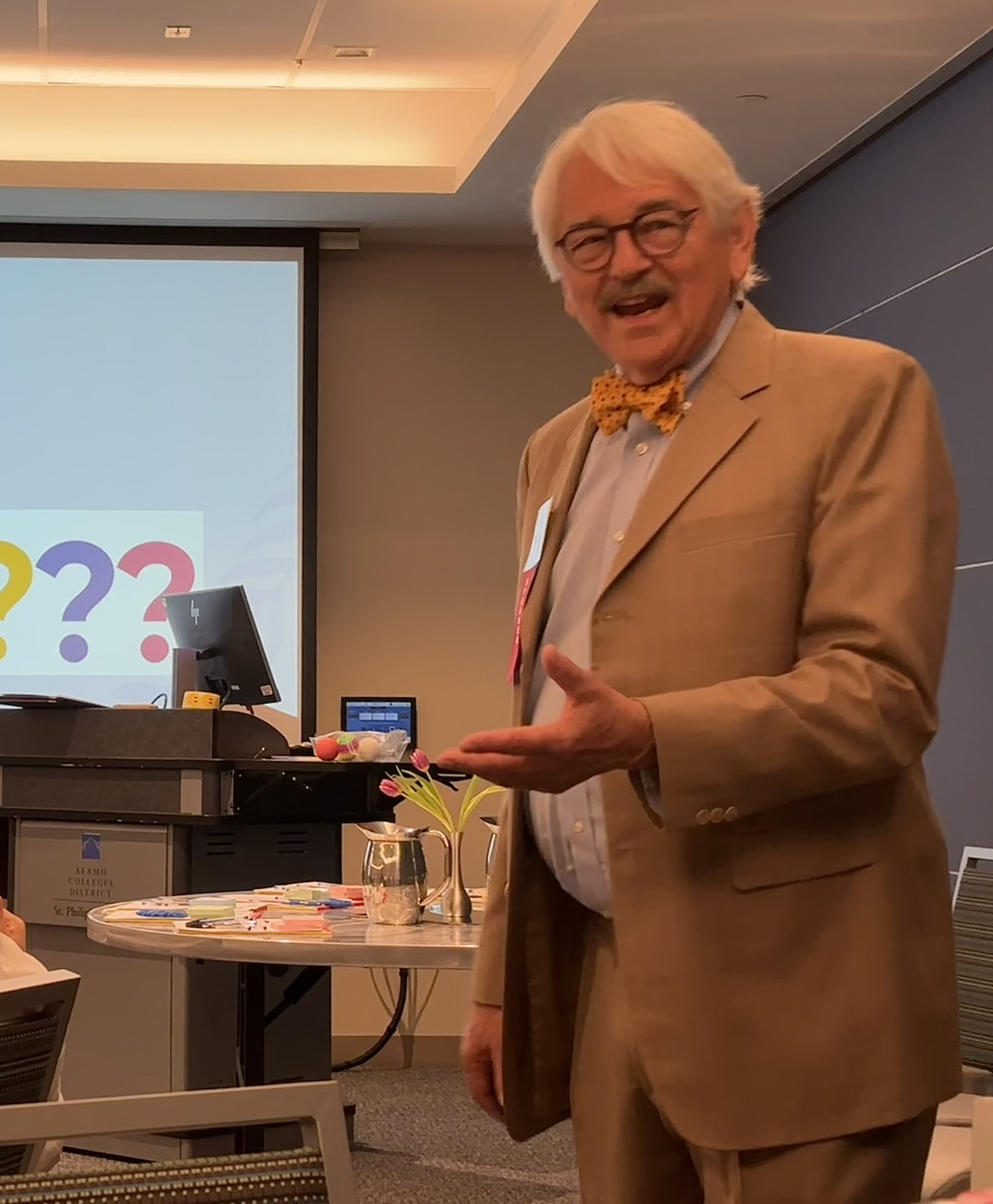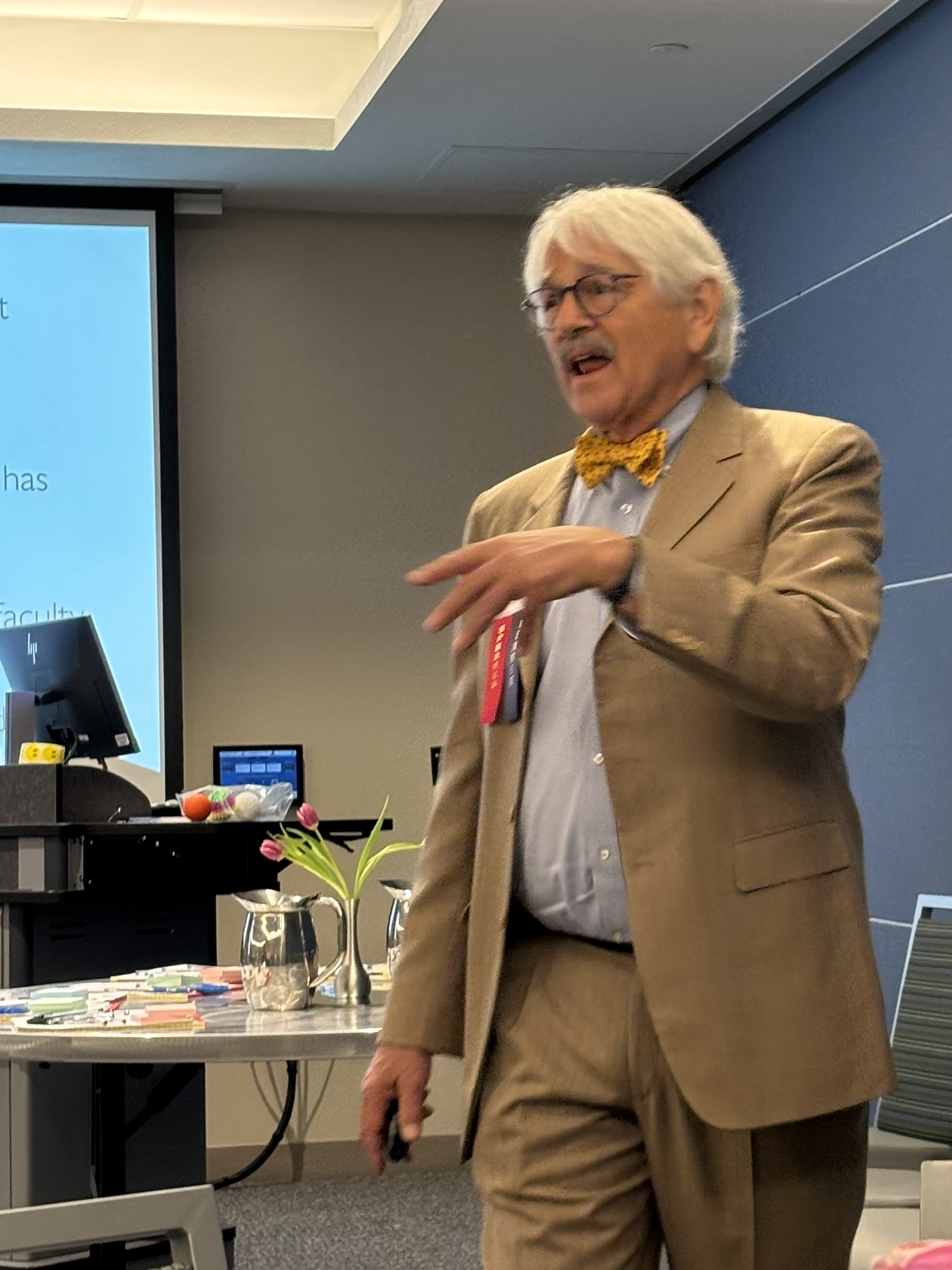
Creative Thinking Drives Possibilities in Culinary Education
07 August 2024Conference session unleashes ideas focusing on reshaping the future of culinary arts education.
By Dr. Fred Mayo
Feedback & comments: This email address is being protected from spambots. You need JavaScript enabled to view it.

The presentation reviewed the overall growth, decline and opportunities for culinary education nationally. For instance, did you know there will be 22,000 openings for chefs and head cooks projected each of the next 10 years? We then discussed why programs fail and what were the characteristics of great programs. Keys to great programs are discovered when faculty members grow and develop while being appreciated and supported.
I shared with them the faculty PRIDE acronym: Professionalism, Resourcefulness, Inspiration Dedication and Excellence. Keeping faculty PRIDE in mind, I presented the deans and directors with several challenges and divided them into small groups to brainstorm ideas centering on organizing the curriculum, increasing community involvement, expanding faculty roles, building student competency and increasing energy and excitement.
Since the participants were encouraged to dream large and let loose their creative ideas, they came up with a wide range of intriguing ideas which can be clustered into categories such as exciting and building change, expanding and invigorating faculty roles, devising creative classroom ideas, and integrating community involvement and activities in the education of students.
Remembering that each school and program is different, consider which of these ideas, or what parts of these ideas, might invigorate your program, your faculty, and the education of your students.
Excite Students and Faculty Members for Change
- Design a platform for change that increases the environment where excellence is possible
- Change the system of the program one day at a time
- Support individual passion projects and help them flourish
- Convert self-interest and established processes to enhance and promote change
- Remember and use every “mistake” and turn them into lessons
- Build in time for planning, reflection, and strategic thinking
- Engage all stakeholders (students, faculty, advisory board, administrators, and employees) in meaningful ways when planning for changes
- Focus on supporting faculty and decide what they need to grow and develop
- Require that people with complaints need to bring possible solutions; complaints alone do not help
Expand and Invigorate Faculty Roles
- Support professional development for faculty based on their individual needs
- Help faculty members and staff learn new practices and ideas from peer institutions
- Onboard new faculty and staff with care, consistency, and inspirational activities
- Set all faculty members – FT, PT, and adjuncts – up for success by providing appropriate resources
- Understand our own limitations – i.e. work-life balance – and have open dialogue on the issue
- Build comfort in saying “no” since saying “yes” doe not mean much if you cannot say “no”
- Train faculty in new ideas for day one of classes
- Build institutional training for consistent cooking practices
- Add excellence as a criterion for the admissions process
- Provide incentives – and not simply financial – for faculty participation
- Develop formal lesson plans to optimize learning skills
- Optimize course mapping assessments
- Select and use new equipment and updated technology in classes
- Find ways to do better with the time you have
- Improve faculty lesson planning practices
Devise Creative Classroom Ideas
- Orient students more thoroughly for the educational program
- Make students responsible for ordering, receiving and storing, and distributing food to the lab
- Incentivize in-class activities
- Communicate and uphold the values of excellence, integrity, and clear expectations using ideas from faculty members
- Start learning from the end and proceed to the front – start with ketchup and move to tomatoes and herbs
- Cross-train as many faculty as possible for program consistency and faculty development
Refocus Our Attention on Students
- Treat students like customers or guests
- Embrace servant leadership
- Seek the opportunity to acquire new information
- Flip the classroom and encourage students to teach what they know
- Optimize students’ time by offering multiple varied modalities (delivery of courses) and hybrid online seven-week courses (instead of the full semester)
- Try two days a week, instead of four of five, to address different styles of student learning
- Use advisory boards to promote student learning
- Harness best practices that occur in your school
Integrate Advisory Panels, Community Organizations and Local Activities in The Education of Students
- Build more service-learning opportunities
- Require grades with embedded opportunity for assigned student roles
- Identify food programs that need and can benefit from student involvement
- Engage all stakeholders (students, faculty, advisory board, administrators, and employees) in meaningful participation in planning
- Strengthen your Program Advisory Committees by making meetings productive, defining new parameters for scholarships, and promoting involvement with the students and faculty members
- Create an annual, or periodic, repetitive and sustainable event
- Increase involvement with Future Farmers of America and other similar organizations
- Foster relationships with local farmers to use products that are not perfect for markets – use “uglies” in creative teaching
As you can read, the small groups produced a wide range of creative ideas in many areas. There were many more ideas discussed at the conference triggered by the energy and excitement about these new ideas. As you consider your plans for the year, focus on a few ideas and try them, share your results – successes and chances to try again – since you can learn from those joint discussions and reflective activities. Keep reading the Gold Medal Classroom for new ideas, and consider coming to the CAFÉ’s Leadership Conference next June as well.


